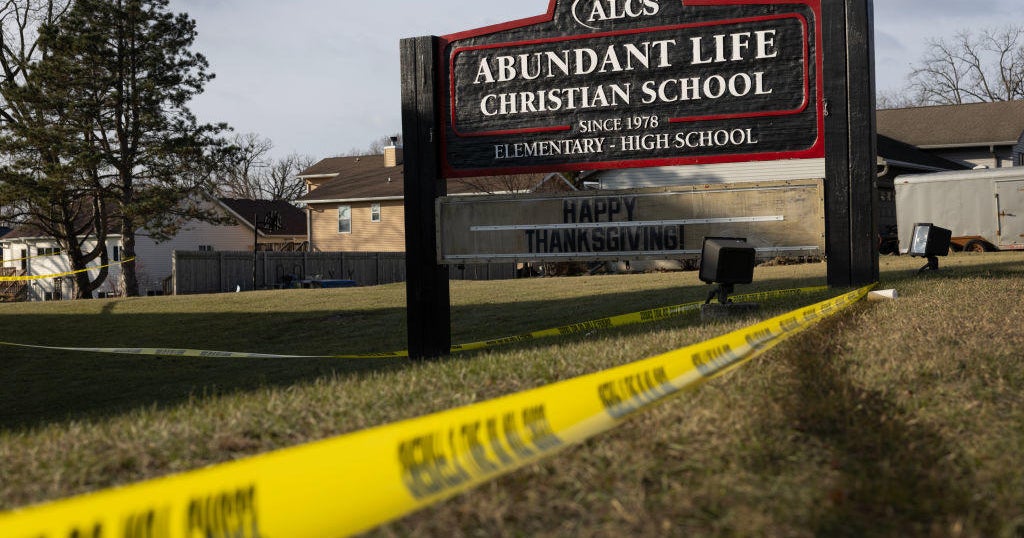CBS News
Late genealogist remembered for work uncovering Black Americans’ family histories

Montgomery, Alabama — Scanning through archives may seem like a daunting task, but if you know what you’re looking for — like genealogist Frazine Taylor did — small clues quickly reveal the story of a real person.
“I used to like detective stories,” Taylor said. “That’s what family history is. You having a little piece here and a little piece there.”
For some Black Americans, they are pieces of a picture shattered by systemic racism.
At Alabama State University, Taylor spent decades as an archivist, sifting through documents where humans are only identified by numbers, names are misspelled and racially segregated records leave holes in family trees.
Before she died in July, Taylor hoped to impart on young people the importance of knowing your family history.
“Self-worth. That’s important. You know, like I can sit here and tell you about my family all the way down to some parts of slavery. I feel proud of that,” Taylor said.
In the decades after the Civil War, Black Americans owned an estimated 16 million acres of land, but by the turn of the century, 90% of that had been lost or stolen, amounting to a near $326 billion loss in wealth, according to the American Bar Association.
Taylor said we won’t ever know the full extent of enslaved people and their involvement, “because the records are not there.” Records are missing or obscured, making lines of ownership difficult to follow.
Taylor helped Josephine Bolling McCall uncover the truth about her father’s life and death.
“In doing family history, we start with ourselves and work backwards,” Taylor said.
Elmore Bolling was lynched in 1947, when McCall was just 5 years old. He was a business man who was targeted by a white mob for his success.
“Some people were lynched for merely crossing the street in front of a White person,” McCall said. “My father was lynched because he was doing good. He had not committed a crime. They wanted to cut him down because he was making the wrong example for Blacks in the community.”
That “wrong example” was simply “achievement and helping others to achieve,” she added.
With help from Taylor, McCall wrote a book documenting her father’s story, a full story she didn’t know until she was 35 years old. Despite the tragedy, she says she and her family were never angry.
Taylor spoke to CBS News earlier this year as she was undergoing chemotherapy and had partially retired, but her passion for teaching was untouched. Up until her death, she continued to encourage the next generation to keep looking at the past, through her book and classes on how-to search the archives. At Alabama State, she worked with young librarians, by sharing her knowledge with archivists like Kashonda Murphy.
“The past is important, because it gives us insight into the future. If you don’t know where you’re from, I mean, you don’t know what’s ahead of you,” Murphy said.
It’s important work, even when it’s painful or infuriating.
“It will make you mad,” Taylor said. “It’ll make you where you do not want to do any more research. But who’s gonna do it and document it so that grandkid, or that kid, can be proud of their family? Not what happened to them, but because of who they were.”
Taylor died at 79 years old after a battle with cancer. By her estimates, she helped nearly 10,000 people connect with their past.
CBS News
12/18: The Daily Report – CBS News

Watch CBS News
Be the first to know
Get browser notifications for breaking news, live events, and exclusive reporting.
CBS News
Teacher, student killed in Wisconsin school shooting identified

A teacher and student killed in a shooting earlier this week at a school in Madison, Wisconsin, were identified Wednesday by authorities.
The Dane County Medical Examiner’s Office said in a news release provided to CBS News that 42-year-old Erin West and 14-year-old Rubi Vergara were fatally shot Monday morning at Abundant Life Christian School.
Preliminary examinations determined the two died of “homicidal firearm related trauma.” Both were pronounced dead at the scene, the medical examiner said.
An online obituary on a local funeral site stated Vergara was a freshman who leaves behind her parents, one brother, and a large extended family. It described her as “an avid reader” who “loved art, singing and playing keyboard in the family worship band.”
West’s exact position with the school was unclear.
The medical examiner also confirmed that a preliminary autopsy found that the suspected shooter, 15-year-old Natalie Rupnow — a student at the same school — was pronounced dead at a local hospital Monday of “firearm related trauma.” Madison Chief of Police Shon F. Barnes had previously told reporters that Rupnow was pronounced dead while being transported to a hospital.
Police had also previously stated that she was believed to have died from a self-inflicted gunshot wound.
The shooting at the private Christian K-12 school was reported just before 11 a.m. Monday. In addition to the two people killed and the shooter, six others were wounded.
Police said the shooting occurred in a classroom where a study hall was taking place involving students from several grades.
A handgun was recovered after the shooting, Barnes said, but it was unclear where the gun came from or how many shots were fired. A law enforcement source said the weapon used in the shooting appears to have been a 9 mm pistol.
and
contributed to this report.
CBS News
Last-minute government funding bill in limbo after opposition from Trump, others

Watch CBS News
Be the first to know
Get browser notifications for breaking news, live events, and exclusive reporting.










